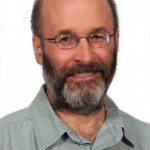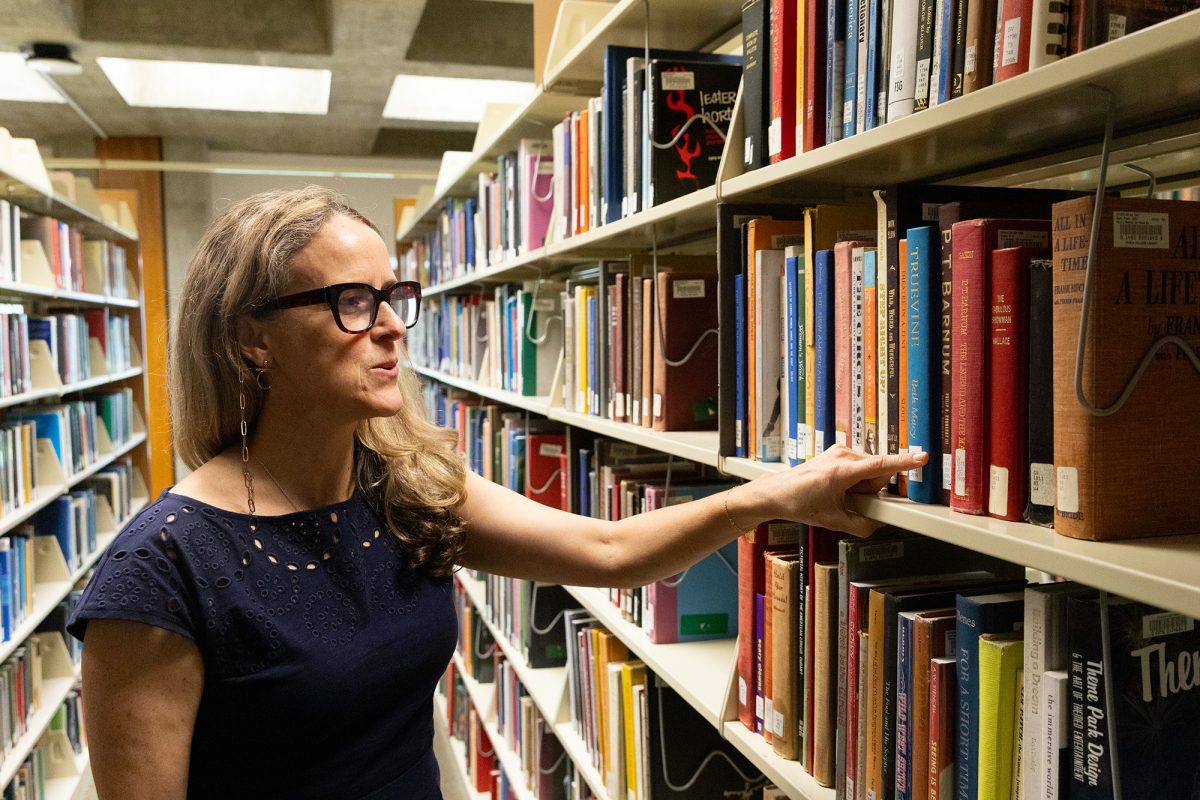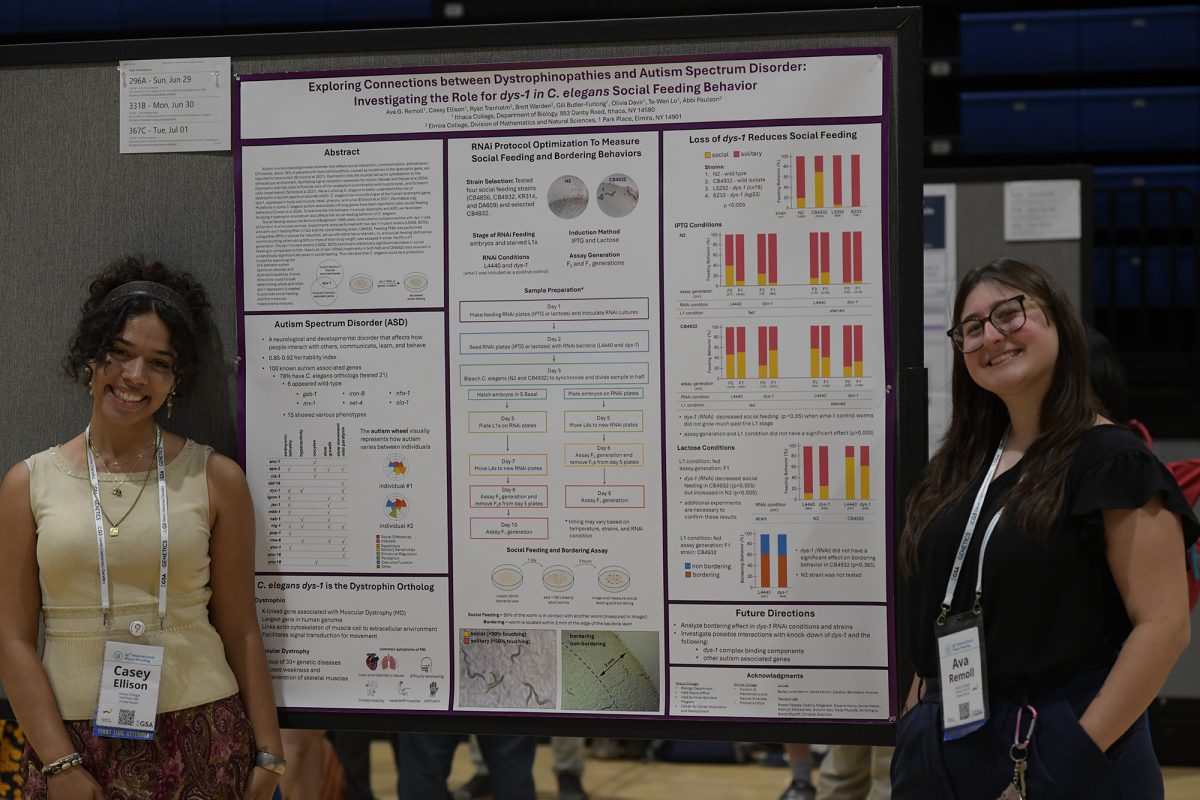Timothy Johnson, professor of music theory, history and composition at Ithaca College, was recently inducted into the Ithaca College chapter of the Pi Mu Epsilon Math Honors Society.His works relating music theory to mathematics, including a book about diatonic theory, a musical technique that applies mathematics to a repeating musical scale and its relationship to music, and a chapter in “Music Theory and Mathematics: Chords, Collections, and Transformations,” has helped him become a prominent figure in both the music and mathematics communities at the college.

Johnson said his book, “Foundations of Diatonic Theory: A Mathematically Based Approach to Music Fundamentals,” is a textbook that takes advanced ideas in mathematical music theory and presents them in a way that students, even in an introductory course, would appreciate.
Staff Writer Kristen Mansfield spoke with Johnson to discuss his wide range of interests and recent induction into the society.
Kristen Mansfield: Which of your works do you think got you recognized in the Math Honors Society?
Timothy Johnson: Probably my book on mathematics and music and my chapter in another book — I’ve been invited to speak at the Mathematics Association of America, and my math colleagues went to the talk, too. We talked about different aspects of the relationship between music and mathematics. Quite a few of my mathematics colleagues here are interested in that, so I think that caught their attention to my work. They also invited me to speak at the sophomore seminar for math majors, and I’ve given a talk at that event twice.
KM: You’ve written books in various fields, including baseball, music and math, how did you develop such a wide range of interests?
TJ: They’re all about music. But I like baseball — it’s one of my hobbies, so that’s an obvious fit for me. Also, one of my favorite composers [Charles Ives] had a piece about baseball, and that is sort of what sparked my interest in that project. I always liked math but I didn’t pursue it past high school. My professor in doctoral school is one of the leading people in the field of diatonic theory, which is sort of this mathematical area that I worked on in writing that book. Then my other project was on John Adams, a composer I’ve been interested in for a long time. The opera continues to get performed, so it seemed like an interesting project to study that opera in detail and to do it from an interdisciplinary perspective. I like doing interdisciplinary things — thinking about music in its whole context.
KM: Is that something you try to teach your students?
TJ: I’m teaching an Ithaca seminar this semester on mathematics in music, and I’ve taught a freshman honors seminar a couple years ago for music majors on mathematics in music. When I teach inform and analysis classes, which I’m teaching now, the first project we did was on a scene in the movie “Philadelphia,” in which an aria gets played … and I set up a paper assignment for the students in which they have to talk about the opera, the music and the film and relate them all together. There are lots of little things like that where I like to bring in different areas outside of music.
KM: What does it mean to you to be in this society, along with the other music societies you’re in?
TJ: It’s a tremendous honor to be selected for any honors society, but outside of one’s field is pretty unusual. It means a lot to me that they had enough respect for my work that they chose to induct me into this society. A little piece of me thinks it’s kind of ironic because I’m a music theorist, not a mathematician. It’s kind of cool. And the same thing, when I received an award from the sporting news society for American baseball research for my book on baseball, you know? Here’s this music theorist getting an award with Bill James and Rob Neyer, who are famous baseball writers, and then there’s me. So that was a weird combination but also very exciting and gratifying.







